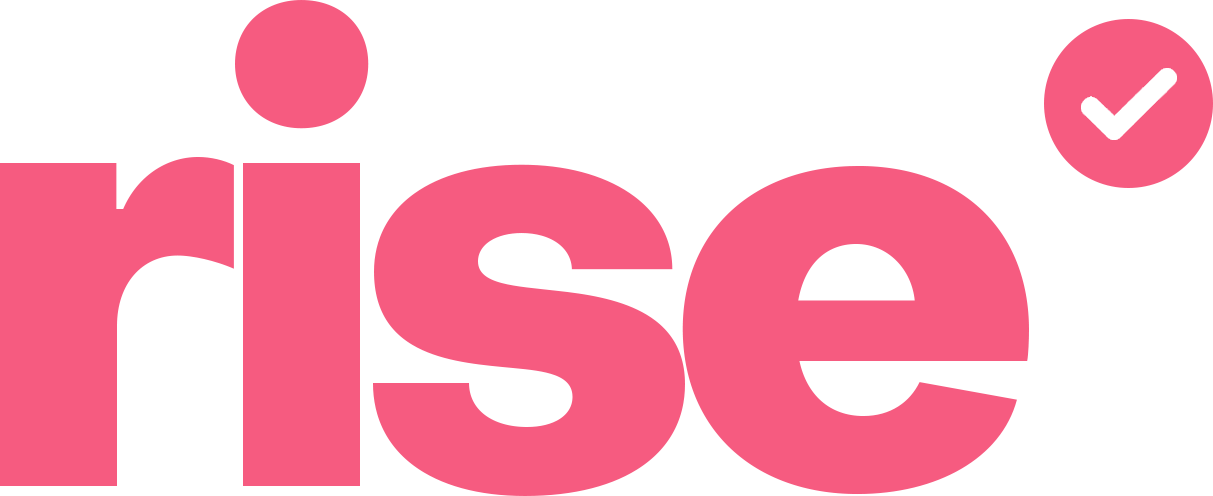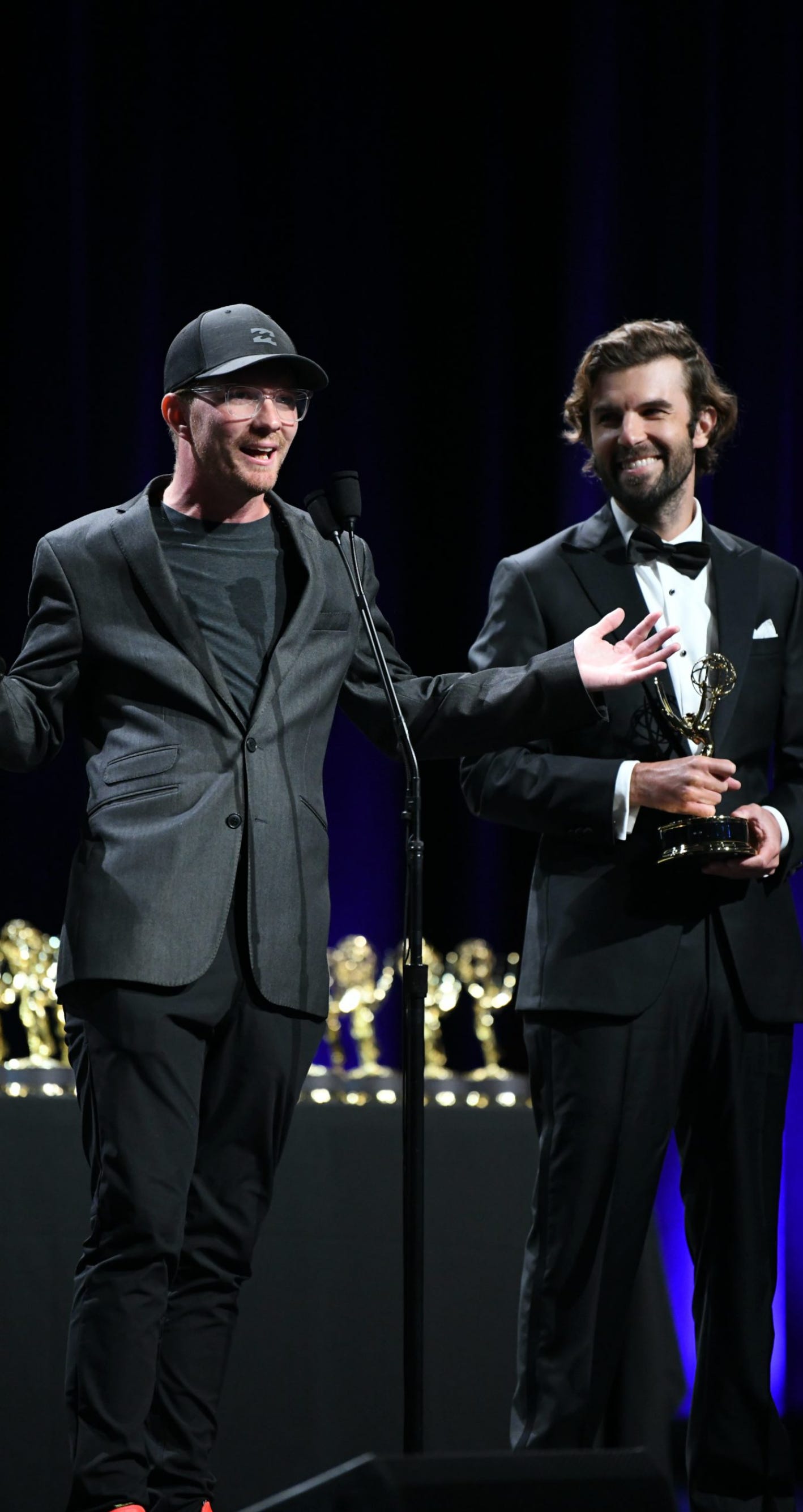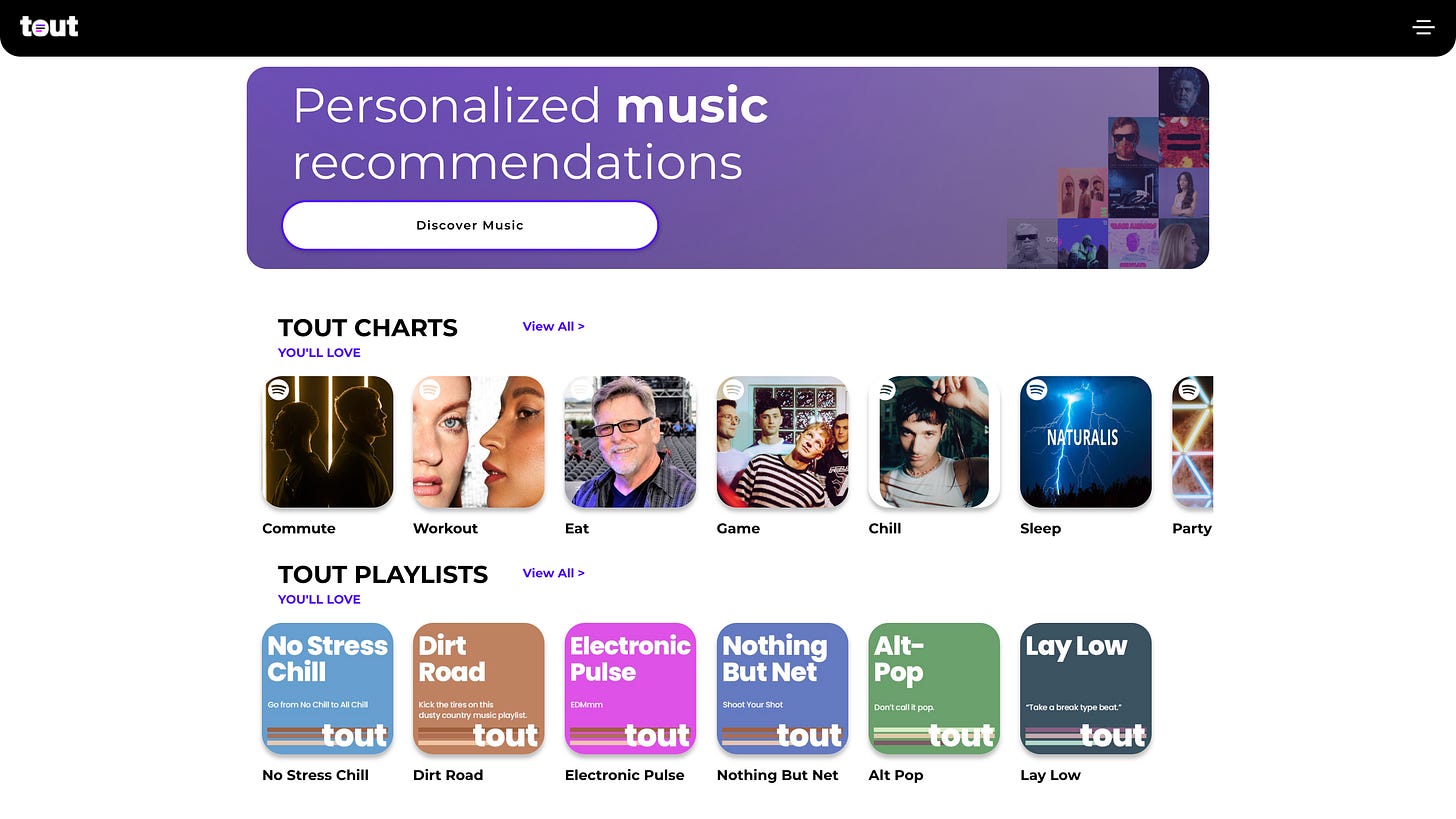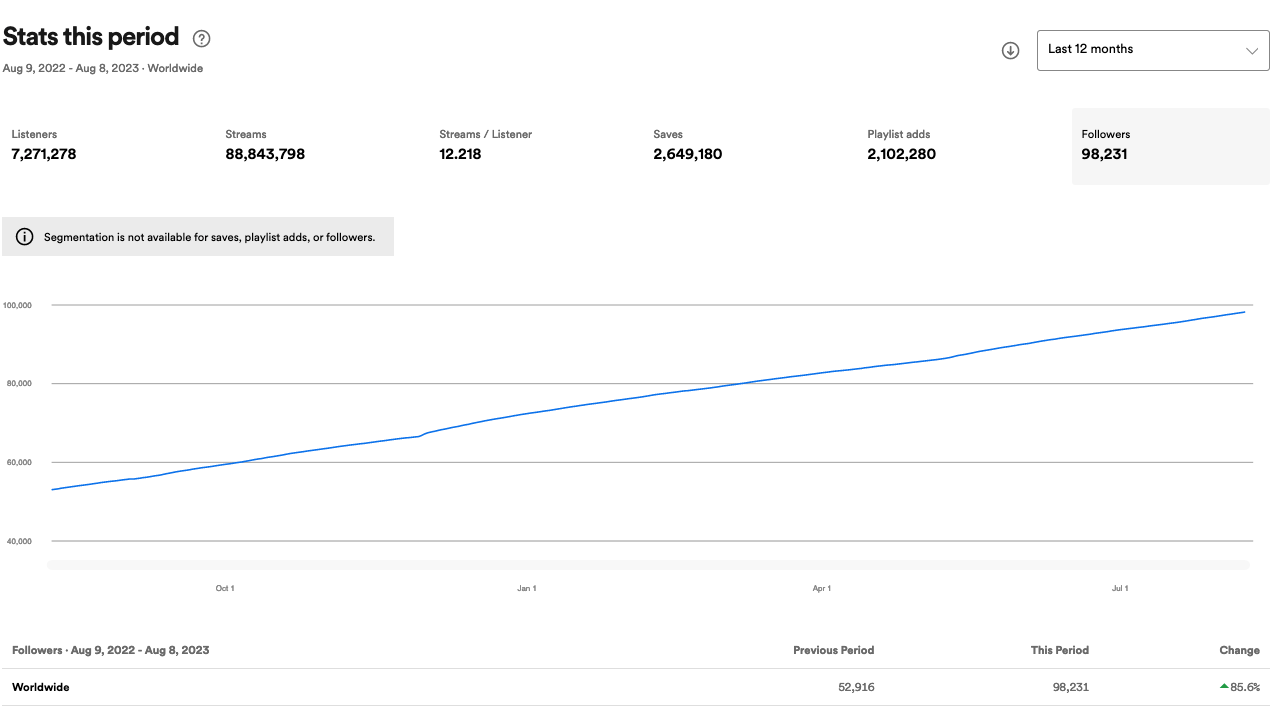🔔 Forget Playlist Pitching: Here’s An Alternative Way Of Promoting Your Music
Ripen under the Californian sun, rise.la promises to give artists and labels a chance to get their music discovered by potential fans, with no strings attached.
60,000! This is the total amount of songs that are released every single day on Spotify. Yes, a figure that our brains is unable cu comprehend, so let’s make it easier: 42 songs per minute! Imagine 42 artists trying at the same time to convince listeners to listen to their music! Imagine 42 artists trying to figure out at the same time who’s more likely to listen to their music! 42 artists that compete with each other every single minute for listening time on the poor listeners’ playlists! Well, this is the downside of the digital century, where basically anyone with an internet connection and a device able to connect online can start making music, then distributing it on all digital streaming platforms!
If you haven’t subscribed to our newsletter yet, it’s time to do it. Music promo tips & tricks, detailed music marketing strategies as well as tools that would make your independent artist life way easier. Hit the subscribe button below.
Giving these not so optimistic circumstances, a new layer is needed: a curation layer that stands between those hundred of millions of music consumers (sadly, we cannot identify ourselves as music listeners anymore) and music. Sure, we already have the editorial playlists, the independent curators, the radio stations, music blogs and soundcloud accounts. But how about a music discovery service tailored to one’s already established musical preferences? A platform that brings young guns a step closer to their potential fans, with no hidden agendas, gated options or follow-to-listen schemes?
Ripen under the Californian sun, rise.la promises to give artists and labels a chance to get their music discovered by potential fans, with no strings attached. Custom tailored for each major platform, from TikTok to Youtube and from Spotify to Instagram, rise.la let the artists create a music marketing campaign with just a few clicks, by using a totally different approach that allows them to better target the campaigns to listeners. The 7 people team at rise.la deals with thousands of campaigns on a global level, with 70% being return customers, while being trusted by big guns, like Sony, Warner, Universal, AWAL, The Orchard, Nettwerk, The Nations, and more.
Curious about what’s under the hood, we had an interesting discussion with Tim Jack, founder of rise.la, who was kind enough to reveal all the secrets that empower his platform to what it became today. Tim is an American entrepreneur, filmmaker, and investor. He is the current Founder and CEO of Rise. He’s also running JACKTV, an award-winning production company, and The Agent, an e-commerce brand accelerator. In 2022, Tim Jack received an Emmy award for his first feature film, Enormous: The Gorge Story.
What’s the story behind rise.la? How did you come up with the idea of a music promo platform?
Originally I was running a video production company called Jack TV. We were creating commercial content, live content and branded content for the web. A lot of the content we started getting drawn into was music industry stuff: live sessions, music festivals, stories of different artists, things like that. Somewhere along the way, people started asking us “hey, now that we've spent all this money on this video, how can we get people to see it? We don't have a way to distribute the video or a way to advertise the video, and we've just now spent all this money on it.” And so that was the birth of the Rise.la idea. And as we leaned more into the music industry, we started finding that there were all these different artists that were incredibly talented and had very little experience on ways to promote themselves. In the beginning we start learning about the music marketing biz and we found that there were a lot of fake marketing services that were getting people fake followers, getting on fake playlists, a lot of bots and computer-generated fake listeners. We asked ourselves the question: how can we make something real? And that was the beginning of how Rise came to focus.
Do you have a background in the music industry?
Not really. I'm more of an entrepreneur first. I was living in Colorado, running some other businesses. And at one point, I just stopped doing everything and decided I want to do something fun that I enjoy that every day when I work on it, so that's when I decided that video production and music and entertainment would be the right place for me to do that so I never had a background in it until I created it.
Rise.la has a rather interesting approach when promoting music to their potential listeners. Can you give us a super short walkthrough on how things work with Rise.la?
So, Rise offers results on four major platforms right now, as far as music industry is concerned: Spotify, YouTube, TikTok, and also Instagram. Within that, each platform works slightly differently. So it depends on the platform and the type of content that's being promoted. The short answer for this is that we differentiate in a few ways:
For every campaign on every platform, we guarantee minimum results, which artists really like when they have a small budget to work with and those dollars are really important to them. We don't want artists to be throwing away or gambling their money. So we make sure that there's a result for them.
We make everything extremely easy, which is the case for some other platforms, but I think we take it to another level. It requires absolutely no technical skills, no advertising skills, no creative content skills. We try to make everything 100% turnkey. So if you either don't have the skills or you don't have the time or both, then you can set up a campaign in just a couple of minutes and have guaranteed results on any of the platforms I just mentioned.
Then, there’s a couple of things that make it even more different and that I'm pretty excited about. We have one of the largest data sets on music advertising there is. So we've spent literally millions of dollars advertising music content. All of those audiences retargeting pixels, data on listeners: we have all of that connected in our system. We have a lot of data to pull on and a lot of experience on what type of audiences respond to what type of content. Also, the thing that I am most excited about is that, instead of just being a platform that serves the artists, labels and distributors, we also created tools for listeners. We created a place for people to discover new music and new content voluntarily through a sub-brand called Tout. That's a place where people can go and discover new music content. And artists that wanna promote themselves can be featured in our algorithm using Rise as a campaign tool to get there. We are a matchmaker between listeners and artists as well
Spotify campaigns run through Rise are based on Tout app users. Why should one use Tout to discover new music instead of just using Spotify’s editorial or algorithmic playlists?
I think Spotify does a great job in the beginning at recommending new music. But where it falls short is that it gives you very little control over what it actually shows up there. So think of this as just an extra layer, where it gives me choice to sit down and do some matchmaking, to discover new artists and songs. I may want to listen to a preview and then I can click the skip button because I didn't like that artist. I don't really want that in my Discover Weekly or Release Radar. I don't want it in my library at all. So it allows me to develop a little bit more of a say in what that music is or isn't that I like. And then tout will create that extra layer where we actually do a custom playlist in your account. You would have those music recommendations that you like, mixed in with other music that you already like, and that playlist will actually automatically update every week for you as well. And those same recommendations that you like also go into your Spotify account as well, so it gives you a little bit of control to where those artists will also show up in Discover Weekly, Release Radar or other algorithmic playlists. It gives you just a little bit more control. It's kind of fun. And we also have some tools like Rabbit Hole where you can put in, say, your favorite artist of all time and go down the rabbit hole of what other similar artists you've never heard of. So there's just some different things that make it a little bit more unique.
I am a new artist with a close to zero back catalog but willing to breakthrough. From your point of view, what is the most simple & efficient strategy to promote myself and reach potential fans of my music?
That's a very difficult question to answer because I think the answer is different for everyone. A lot of people don't put enough emphasis on creating great music and doing it consistently over time. I feel like a lot of artists will create something and say this is it. The reality is that it's an extremely competitive place out there on Spotify and these other platforms. The best way that I've seen is for people to develop some sense of community on social media through telling a personal story that people can connect to. And, obviously, that is through the music, but also through social media content. I think that another way to do that is to innovate, create some sort of creative video format or a medium or output that is a little bit different than what's out there, and have the ability to create some type of a trend. Then another way to do it is to let the algorithm speak for itself.
Also, a lot of people don't do enough testing. So I guess the third point I would make is experimentation. If you're creating music, it's pretty easy to make a 15 or 30 second video asset that features the music. Put it out on social media, get organic reach, see how it performs and get people to engage with it.
Once you can test the waters in that way and find out that there's something that people like organically, then you can say, OK, I'm going to publish this, and I'm going to put a campaign budget behind it. Once you get into that side of things, Rise is a great tool in the toolbox. By all means, there are a lot of other platforms people can make use of as well. We don't try to ever be the “one size fits all” marketing solution for the music industry. There's a lot of great other companies out there that can offer playlisting support: SubmitHub, blogs, other curation sources, other promotion services.
I think that my ultimate answer is people need to experiment more and they need to get some organic validation through testing their content to see what people actually like in terms of engagement. That's the stuff that I would focus on.
Besides Spotify promo campaigns for new releases, which I suppose gets the most requests, what else does Rise offer for artists and labels?
YouTube is really popular on Rise. Google ads, which is what YouTube campaigns run on, is a pretty complicated platform and it's time consuming. A lot of people either don't have any idea how to use that, even record labels, a lot of the marketing employees that are actually experts in YouTube use Rise to run a lot of their campaigns because it's a time saver. Either they're gonna spend hours and hours in YouTube or Google ads each week, setting up and maintaining video campaigns, or they could go on Rise and spend a couple of minutes setting it up and being done with it. That's what a lot of people do.
TikTok campaigns are equivalently popular, I would say. Guaranteed follower growth on TikTok right now, guaranteed engagement campaigns. Same reason: it makes everything much easier and a really big time saver on TikTok as well. But we're also developing the data sets on both of those platforms just the same as we would Instagram and Facebook, where we have a lot of internal information about who to advertise content to.
We have a little bit of an edge in targeting on Rise. Outside of that, Instagram campaigns as well, as they're very comparable to TikTok. The only thing that's different is you cannot guarantee follower growth on Instagram. And if anyone is offering that, I would be a suspect of what it is and how they're doing that, because there's not really an easy way to do that legitimately.
We also are introducing podcast growth right now. We do have a lot of live trials going on with podcast growth, and those are going pretty successfully. Also, a new product that we've been testing in the background, that I can't say a lot about right now, designed to create a great experience for fans and artists to connect on release day and to get the engagement up on the music the day that it's released as well. So, this is hitting Spotify's engagement metric of getting your followers to listen to your music the same day that it comes out, in those critical hours.
I think the artist needs to define what success looks like first for themselves
Nowadays everybody seem to chase the stream numbers on DSPs’. Do you think this is an important KPI to measure one artist success? Which metrics do you think are more important?
I think the artist needs to define what success looks like first for themselves. And I know artists that don't want to tour and perform live very often. They just really love being more or less an internet artist, a social media artist. And so those metrics like streaming are ultra important because that's how they make a living and that's how they measure their success.
I know other artists that really don't care that much about it and they're, you know, true touring artists that like to perform live, want that as a career and as a lifestyle and want to make their money that way. So they're not very focused on getting streaming numbers and it's not that important to them, but getting people to show up to their shows is extremely important. So that is really up to the artist.
I think streaming is obviously an important metric. I don't know if it’s a measure of success, but to ensure that people are hearing the music, yeah, it's a fact. Seeing the streaming numbers there is a good validation that people are listening to the music. But I think the ultimate answer that underpins all of this is engagement. So whether you're performing live in a room in a venue, or you are on Spotify and you're looking at streaming numbers, what's the engagement rate look like? Out of the people that are your fans, how many are actually showing up to the show? How many people are leaving a comment and supporting you when you post on social media? How many people are actually liking a song and then coming back and listening to it again on Spotify? That's really the most important metric.
“It's how many streams or how many followers, how many whatever's can I get! And I don't really care about the engagement.” Then it all ends up being a bit empty because these people take shortcuts and they put out bad content or buy fake, ad campaigns or whatever it is that they do. But then it ultimately comes back full circle. I'd rather have a thousand people follow me that are really engaged than a hundred thousand people where nobody's real and I get two comments or whatever. And it seems like that people unnecessarily go through that same repetitive cycle on each platform when they probably should have started with engagement in the beginning.
Playlist pitching to independent curators: good for the feature or a waste of time?
I think you end up knowing when it's a waste of time and you've done that only by experimenting. So in the beginning, it's important to try everything, experiment with everything, put in those hours grinding to email independent curators and give that a shot, get creative in the way that it's done. Hey, if you put my song on your playlist, I should say,
If you review my song and want to put it on your playlist, I'll send you some money for a coffee or something. Do something to help stand out that would say, why should I take a minute to listen to your music? It's good in the sense that you need to do it to experiment, to work on your outreach skills, your differentiation skills, to find out how to make an effective pitch.
The ROI I've definitely overwhelmingly heard is pretty low, but there are some good platforms out there that make it a little bit easier.
One success story of an artist who is using rise.la services
One of my favorite ones is Voila. They've always done conversion campaigns on Spotify, exposure campaigns on Spotify with Rise, definitely some other campaigns, but they're just absolutely just doing super well and their music is really good, their engagement is really good, they're hard-working people and they're very involved in looking at their analytics and paying attention to what's working and not working.
They’ve been using our platform since early 2021 and until now they have amassed more than 33K new followers. For the next single on 8/11, we've built up more than 33K pre-saves. When the campaign began, they had 15,845 Listeners, 25,240 Streams, and 12,631 Followers. As you can see from the chart below, they are now sitting at nearly 100K followers, and over the past 12 months alone have had 7.2M listeners, 88.8M streams, 2.6M song saves, and 2.1M playlist ads. Pretty remarkable stuff!
Clearly they deserve the lion's share of the credit because the music is great, and they've worked their butts off, but it's been a joy to be along for the journey.





